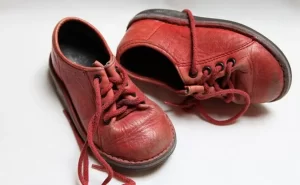Child Asthma and Top-Notch Air Purifiers
High-quality air purifiers can benefit asthmatic youngsters, as you correctly point out. Here’s a better look at how they can help:
Mitigating Asthmatic Triggers:
Airborne Allergens: One significant benefit of air purifiers for asthmatic children is their capacity to catch and eliminate common allergens from indoor air. HEPA filters in high-quality purifiers effectively capture dust mites, pet dander, pollen, and mold spores, all of which can cause asthma attacks.
Reduced Irritants: Air purifiers can also help limit exposure to irritants that might exacerbate asthma symptoms, such as smoke, dust, and volatile organic compounds (VOCs) released by home items.
Cleaner air can lead to better sleep for children with asthma.
Potential improvements:
Fewer Symptoms: By minimizing exposure to specific triggers, air purifiers may help asthmatic children experience
- Fewer coughing or wheezing spells.
- Reduced congestion
- Increased overall breathing comfort.
Better Sleep: Cleaner air can lead to better sleep for children with asthma. Reduced overnight disturbances from respiratory difficulties can considerably enhance their quality of life.
Long-term considerations:
Management Strategy: While air purifiers might be helpful, they should not be the only way to manage childhood asthma. Contacting a doctor and adhering to a thorough asthma action plan that may include medication, allergen avoidance methods, and air purifiers is critical.
Potential Benefits: Scientific data suggests that limiting childhood exposure to air pollution can have considerable long-term benefits for respiratory health.
There is strong evidence that reducing a child’s exposure to air pollution, whether through improved environmental regulations, better air filtration in homes and schools.
Studies have shown that children exposed to reduced amounts of air pollution, such as particulate matter, nitrogen oxides, and other dangerous airborne contaminants, have improved lung function and development as they grow.
This is especially crucial because the lungs and respiratory system develop and mature rapidly throughout the first few years of life. Exposure to air pollution during this critical developing phase might disrupt the correct production and enlargement of the alveoli, which are tiny air sacs in the lungs that exchange gases.
This can lead to decreased lung capacity and an increased risk of chronic respiratory disorders such as asthma, chronic obstructive pulmonary disease (COPD), and even lung cancer later in life.
There is strong evidence that reducing a child’s exposure to air pollution, whether through improved environmental regulations, better air filtration in homes and schools, or other mitigation strategies, can contribute to better long-term respiratory health and a lower risk of developing debilitating chronic respiratory problems in adulthood.
This emphasizes the necessity of prioritizing clean air projects and environmental protection, as these advantages can significantly impact the health and well-being of future generations.
To guarantee the best performance, replace air filters regularly, following the manufacturer’s instructions.
Choosing Air Purifiers:
HEPA Filter: Look for purifiers approved by a respected body, such as the Association of Home Appliance Manufacturers (AHAM).
Room Size: Choose an air purifier with a Clean Air Delivery Rate (CADR) that matches the size of the child’s bedroom. CADR refers to the cleaner’s ability to remove dust, pollen, and smoke particles from the air.
To guarantee the best performance, replace air filters regularly, following the manufacturer’s instructions.
Here are some extra items to consider:
Not a Cure: Air purifiers cannot remove all asthma causes.
Ozone Concerns: Avoid using air purifiers that produce ozone as a byproduct, as ozone can irritate the lungs. Look for air purifiers that are certified for reduced ozone emissions.
Consulting a doctor is required to develop a specific asthma management plan for your child. They may evaluate your child’s needs and determine whether a high-quality air purifier would effectively complement their treatment plan.













